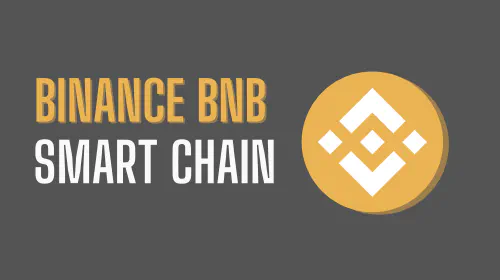Monero vs Cardano: A Comprehensive Comparison of Two Popular Cryptocurrencies
Salomon Kisters
Aug 24, 2023This post may contain affiliate links. If you use these links to buy something we may earn a commission. Thanks!
Monero and Cardano are two popular cryptocurrencies that have been making waves in the digital currency world.
In this blog post, we will compare and contrast these two cryptocurrencies in terms of their features, technology, and potential for growth.
By the end of this article, you will have a clearer understanding of the strengths and weaknesses of each cryptocurrency, and be better equipped to make an informed decision about which one suits your investment needs.
Privacy and Security
One of the key differences between Monero and Cardano lies in their approach to privacy and security. Monero is renowned for its strong focus on privacy, offering users the ability to conduct transactions anonymously. The technology behind Monero employs ring signatures and stealth addresses, thereby ensuring that the sender, receiver, and transaction amount remain confidential. In contrast, Cardano takes a different approach. While it does offer privacy features, its primary focus is on creating a secure and transparent platform for financial applications.
If privacy is a top priority for you, then Monero is the better choice. However, if you value a secure and transparent platform for financial transactions, Cardano may be more suitable.
Scalability and Transaction Speed
Scalability and transaction speed are critical factors to consider when evaluating cryptocurrencies. Monero has faced challenges in terms of scalability due to its approach to privacy. The significant amount of computational power required for maintaining privacy has resulted in slower transaction speeds. On the other hand, Cardano has been designed with scalability in mind. Its layered architecture allows for efficient scaling as the network grows. Additionally, Cardano utilizes a Proof-of-Stake (PoS) consensus mechanism called Ouroboros, which enhances transaction speed.
If you prioritize faster transactions and scalability, Cardano may be the better choice for you. Conversely, if privacy is your primary concern and you can tolerate slightly slower transaction speeds, Monero is worth considering.
Development and Innovation
Development and innovation are crucial factors for the long-term success of cryptocurrencies. Monero has a solid track record of continuous development and innovation. Its team of developers is highly active and consistently introduces new features and upgrades to enhance the privacy and security aspects of the cryptocurrency. Cardano, being a relatively new entrant, has a vision for long-term innovation and sustainability. Its development team, comprising academics and industry experts, is focused on building a robust and secure platform that can support a wide range of decentralized applications.
If you value continuous development and innovation in cryptocurrency, Monero may be the more attractive option for you. However, if you are intrigued by a new and visionary project with the potential for groundbreaking advancements, Cardano may be the more suitable choice.
Adoption and Community
The adoption and community support of a cryptocurrency plays a significant role in its success and growth. Monero has gained a strong and dedicated following over the years, with a vibrant community actively contributing to its development and promotion. Additionally, Monero has been widely accepted as a means of payment by various merchants and individuals. Cardano, although relatively new, has garnered a considerable following as well. Its community is highly engaged and passionate about the project’s technological innovations.
If you appreciate a well-established and supportive community, Monero may be the better choice for you. However, if you find excitement in being part of a rapidly growing community that shares a vision for the future of cryptocurrencies, Cardano may be more appealing.
Ecosystem and Use Cases
An essential aspect to consider when choosing a cryptocurrency is its ecosystem and potential use cases. Monero has gained popularity as a private and secure means of conducting transactions. It has been widely adopted by individuals seeking financial privacy, as well as businesses that value confidentiality in their transactions.
On the other hand, Cardano aims to create a robust platform for decentralized applications and smart contracts. Its unique approach to scalability and security offers immense potential for a wide range of use cases, such as supply chain management, identity verification, and financial services.
If you are primarily interested in private and secure transactions, Monero is the better fit. However, if you are intrigued by the potential for decentralized applications and smart contracts, Cardano offers a more diverse ecosystem.
Conclusion
In conclusion, both Monero and Cardano have their unique strengths and weaknesses. Monero excels in privacy and security, making it an ideal choice for individuals who prioritize anonymity in their transactions.
On the other hand, Cardano offers scalability, transaction flexibility, and a visionary approach, making it an attractive option for those interested in decentralized applications and smart contracts.
Ultimately, your choice between Monero and Cardano should be based on your individual preferences and investment goals.
It is important to conduct thorough research and consider various factors before deciding which cryptocurrency aligns best with your nee
Stay informed with the latest insights in Crypto, Blockchain, and Cyber-Security! Subscribe to our newsletter now to receive exclusive updates, expert analyses, and current developments directly to your inbox. Don't miss the opportunity to expand your knowledge and stay up-to-date.
Love what you're reading? Subscribe for top stories in Crypto, Blockchain, and Cyber-Security. Stay informed with exclusive updates.
Please note that the Content may have been generated with the Help of AI. The editorial content of OriginStamp AG does not constitute a recommendation for investment or purchase advice. In principle, an investment can also lead to a total loss. Therefore, please seek advice before making an investment decision.

Browser Security Settings Everyone Should Know
Learn how to keep your browsing experience safe with these essential browser security settings. Find out how to protect your privacy and secure your data from online threats.

Protecting Your Digital Identity and Data Privacy: Practical Strategies and Tips
Learn how to protect your digital identity and data privacy with practical strategies and tips. Safeguard your personal and financial well-being in today's digital age.

What is a BNB Smart Chain Address?
Discover the ins and outs of BNB Smart Chain and Binance. Learn how to create, use, and secure your BNB Smart Chain address today!
Protect your documents
Your gateway to unforgeable data. Imprint the authenticity of your information with our blockchain timestamp